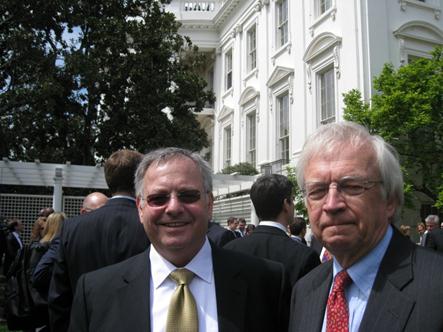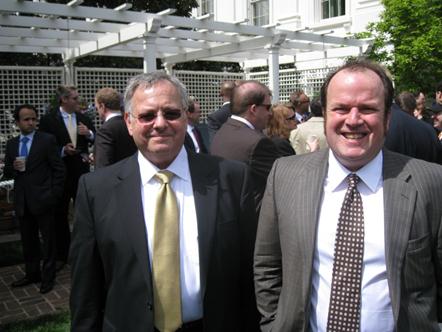Once again, through inadvertent action, the federal government is about to threaten Angel Investing. This all started as a way to increase investment in startups, when congress passed, and the Obama signed the JOBS Act (see: http://blog.drosenassoc.com/?p=97). Title II of the JOBS Act allows “General Solicitation and Advertising” of private placements (like Angel deals). One would think this is good for two principal reasons: (1) it roughly brings current practice into compliance, since many angel groups post their deals on a web site (like Gust, which is used by many angel groups) or run events where companies present to their members and others; and (2) more and more angel deals are funded by many angel groups (usually called syndication), so there is an implicit solicitation. We liked this idea. It allows our companies to reach a broader audience of only accredited investors. All good, right?
Well, not so much. The legislation also asks that the SEC use “reasonable steps to verify” that they are accredited. Even with that, it seems pretty straightforward. The reasonable steps to verify have been around a long time (under Rule 506B). Every time angels (or other accredited investors) make an investment, the deal documents come with a short form that you fill out how you qualify as an accredited investor. The SEC has given “safe harbor” using this mechanism.
But the SEC is considering that this long-accepted method will not be acceptable if an issuer (a startup company raising money using Regulation D) uses the new General Solicitation rule (Rule 506C). Instead, the SEC originally proposed that investors would have to give the issuer copies of their tax returns. The Angel Capital Association (ACA) wrote a very strident response that this would severely diminish angel investing, since few angels would turn over their tax returns to a startup. And, of course, the startup would have to find a way to preserve these records and keep them confidential a real mess, given that most startups don’t even have permanent offices.
The ACA Public Policy Committee fought hard to ensure that existing “quiet offerings” (Rule 506B). Therefore, if you don’t take advantage of the General Solicitation (“noisy offerings”), you still can take advantage of the existing rules.
If you do use a noisy offering, then you will need to follow new rules, which have not yet been written. But the preliminary rules (and discussions with SEC) show that the SEC is unlikely to allow “self certification” for these offerings. Therefore, one of two outcomes now looks likely: (1) issuers (or their attorneys) will have to collect a lot of information about their investors and investors will have to share a lot of personal information; or (2) new third-party certifiers will emerge to do this.
Is this really so bad? YES this is bad. First and foremost, we all rely on the “safe harbor” on the Reg D investments. At this point, the rules don’t give this safe harbor for any particular mode of validating accreditation. This means that deals can be challenged and unwound. Very bad. Secondly, even using third party validation, will cause the costs of these deals to increase. Instead of money going to hire engineers and sales people, it will be used on deal overhead. Very bad. And lastly, most angels HATE extra paperwork. If the validation requires that you hunt through and list all of your deals for the last 5 years (it would take me hours to do this!) And, I would be generally unwilling to provide my tax returns to anyone. In the end, it would just mean a lot of extra paperwork and time. I would probably avoid any deal that used a noisy offering.
I think that the SEC (and the legislators who supported the JOBS Act) really needs to recognize that the angel investing arena has self-regulated very well and the current system has worked well. Extending the current process for noisy offerings makes a ton of sense. It is the right way forward.
After all, “if it ain’t broke, don’t fix it!”









 Shugie was a remarkable creature. Tiny in size, but huge in spirit. Her absolute favorite thing in the entire world was to go to business meetings, which she did from the time she was a tiny puppy. This picture was taken at a meeting. She understood (sometimes better than I did) how to behave at a meeting. She would greet each person, ask me to pick her up, and then sit in her seat looking at each person as they spoke.
Shugie was a remarkable creature. Tiny in size, but huge in spirit. Her absolute favorite thing in the entire world was to go to business meetings, which she did from the time she was a tiny puppy. This picture was taken at a meeting. She understood (sometimes better than I did) how to behave at a meeting. She would greet each person, ask me to pick her up, and then sit in her seat looking at each person as they spoke.